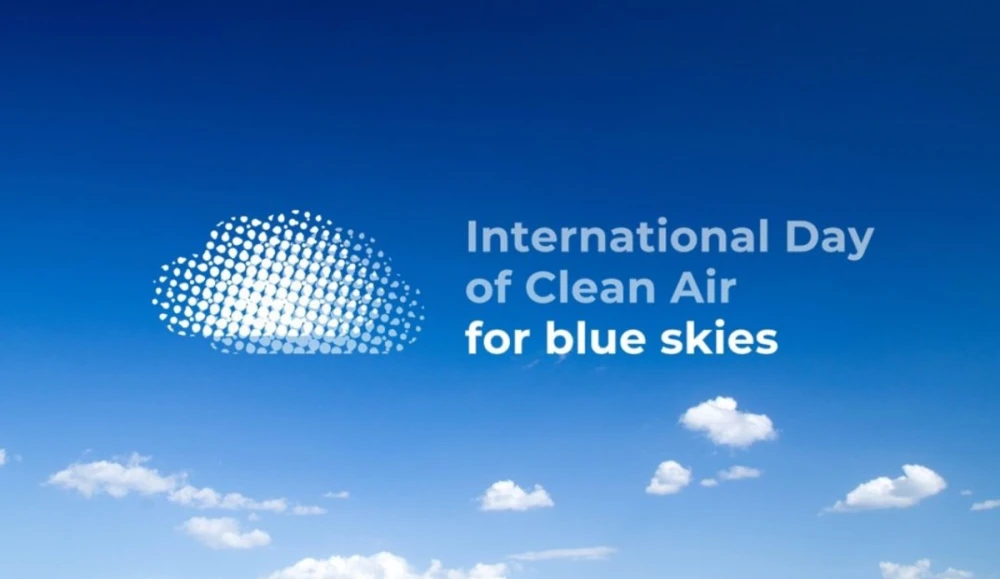
07/09/2023
1788
International Day of Clean Air for Blue Sky
The International Day of Clean Air for blue skies is designated by the United Nations General Assembly on 7 September to strengthen international cooperation in improving air quality and reducing air pollution. The designation was made through the Assembly resolution 74/212, and adopted at that session's 52nd plenary meeting on 19 December 2019.
The resolution was adopted without a vote, generally indicating all countries recognized the importance of the subject, were united on the issue, and no obvious divisions were present.
In that resolution, the General Assembly emphasized "the need to strengthen international cooperation at the global, regional and subregional levels in various areas related to improving air quality, including the collection and utilization of data, joint research and development, and the sharing of best practices."
The International Day aims to raise awareness on the importance of clean air for health, productivity, the economy and the environment; demonstrate the close link of air quality to other environmental and developmental challenges such as climate change; promote solutions that improve air quality by sharing actionable knowledge best practices, innovations, and success stories; and bring together diverse actors for concerted national, regional and international approaches for effective air quality management.
It's no secret that the problem of environmental pollution has long been one of the global problems of our time. Unfortunately, human activity and progress have always had a downside, expressed in the violation of the ecological balance. In addition to the exhaustion of natural resources, human activity was accompanied by pollution of various environmental spheres: water, air, soil. Ultimately, many modern environmental scientists consider pollution to be among the factors that have a serious impact on climate change on the planet.
Emissions of solid particles and gases into the atmosphere in the process of human activity turn into not only global shifts in the climate sphere, but also directly have a negative impact on human health. According to the UN, 99% of the world's territory is exposed to air pollution, which, according to estimates, leads to the premature death of 6.5 million people a year.
The main appeal of the UN is aimed at attracting the attention of all countries of the world to this problem, to attend to the issue of reducing harmful emissions of enterprises and transport into the atmosphere in order to improve the air on the planet and improve the health of humanity itself.
Only an integrated approach and the combined efforts of the governments of all countries can give effective results in the struggle for the improvement of the Earth's atmosphere.
Air is one of those sources of life, without which this life fades away instantly, and the deterioration of the air condition also rapidly negatively affects health. Economists are also not left out, calculating the inevitable increase in the upcoming costs of healthcare and treatment of people whose health will be undermined due to the poor state of the atmosphere, the harmful effects of atmospheric pollution on tourism, etc.
The call for states and large businesses to invest in environmental technologies is accompanied by the development of new fuels, as well as technologies to reduce emissions of harmful substances into the atmosphere in all spheres of human activity. The solution of these tasks directly contributes to the successful implementation of the Sustainable Development Program.
After all, we all breathe the same air, and one atmosphere protects and supports us all. Air pollution is a global problem that we must act together to combat.
Yagshymyrat OVEZOV,
the 2nd year student of the Faculty of International Economic Relations
of the Institute of International Relations
of the Ministry of Foreign Affairs of Turkmenistan
Latest News

12/02/2026
FEBRUARY 13 IS WORLD RADIO DAY
10/02/2026
FEBRUARY 10 – WORLD PULSES DAY!
03/01/2026
WORLD BRAILLE DAY